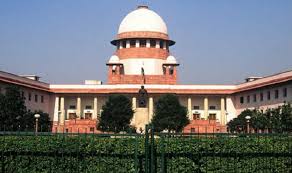The Supreme Court of India’s recent ruling in Just Right for Children Alliance v. S. Harish marks a significant milestone in the country’s efforts to protect children from sexual exploitation. By declaring the mere possession or storage of child sexual abuse
The Court’s decision also aligns with international standards on child protection. Many countries have adopted similar laws that criminalize the possession and distribution of child sexual abuse material. India’s alignment with these global norms demonstrates its commitment to safeguarding children’s rights and protecting them from harm. The decision has been recognized internationally as a significant step forward in the protection of children. It has been cited by other countries as a model for their legal frameworks and has contributed to a global effort to combat child sexual abuse.
However, while the Court’s ruling is a significant victory, it is essential to note that the battle against child sexual abuse is far from over. Enforcement agencies must be equipped with the necessary resources and expertise to investigate and prosecute cases involving child sexual abuse material. The decision has encouraged organizations and individuals working in child protection to strengthen their prevention efforts. This has included the development of educational programs to raise awareness among children and parents about the risks of online sexual exploitation, the creation of hotlines and reporting mechanisms for victims, and the implementation of technological tools to detect and prevent the spread of child sexual abuse material. Moreover, there is a need for increased awareness and education about the dangers of such content and the legal consequences of possessing or sharing it.
In conclusion, The Supreme Court’s decision in Just Right for Children Alliance v. S. Harish has significantly impacted child protection efforts in India. It has strengthened the legal framework for protecting children from sexual exploitation by clearly establishing that the mere possession or storage of child sexual abuse material is a punishable offense.
This has sent a strong message to potential offenders and has encouraged law enforcement agencies to take a more proactive approach to combating this crime.
Additionally, the decision has raised public awareness about the issue of child sexual abuse material and has led to increased efforts to prevent the creation and distribution of such content. However, despite these positive developments, challenges remain in effectively enforcing the law and ensuring that all victims of child sexual abuse receive the support they need.
Author is Associate Dean, School of Law, GD Goenka University, Gurugram.

